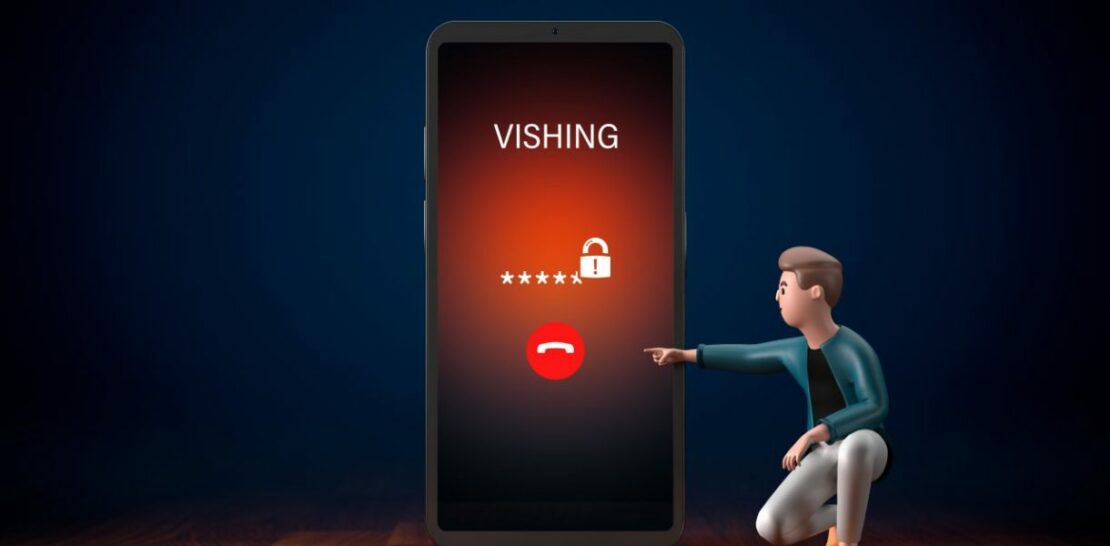In the ever-evolving world of scams and fraud, criminals are constantly devising new tactics to swindle unsuspecting victims.
While phishing scams have long plagued the internet, a new breed of phone-based scam known as “vishing” is quickly becoming the latest trend for these nefarious actors.
This comprehensive article will explore the ins and outs of vishing, providing you with crucial information on this dangerous new phenomenon.
We’ll delve into its origins, how it’s executed, its devastating consequences, and most importantly, how you can protect yourself from falling prey to these cunning criminals.
Understanding the Roots of Vishing
To truly grasp the concept of vishing, it’s essential to first understand its origins and how it’s related to the more widely known practice of phishing.
Phishing is a fraudulent attempt to obtain sensitive information such as usernames, passwords, and credit card details by disguising oneself as a trustworthy entity via electronic communication. This is typically done through email, instant messaging, or social media platforms. The term “phishing” is derived from the word “fishing” because the perpetrator is essentially casting a wide net in the hopes of “catching” the victim’s personal information.
Similarly, vishing is a portmanteau of “voice phishing” and involves the same concept of trying to deceive victims and extract sensitive information through the use of phone calls. The fundamental difference between the two lies in the medium through which they are conducted: phishing primarily relies on electronic communication, while vishing is executed via phone calls.
Vishing Attacks: How They Work
Now that we’ve established the connection between phishing and vishing, it’s time to delve deeper into the mechanics of a vishing attack. This section will detail the various methods deployed by criminals to execute their devious schemes.
- Caller ID Spoofing: This technique involves the manipulation of the information displayed on the recipient’s phone, making it appear as though the call is coming from a legitimate source. Scammers often use this method to impersonate banks, government agencies, or other trusted organizations.
- Pretexting: In this scenario, the scammer creates a believable story or pretext to gain the victim’s trust and extract sensitive information. For example, they may claim to be from the victim’s bank and require their account details to verify their identity due to suspicious activity.
- Robocalls: These are automated phone calls that deliver a pre-recorded message. The message usually instructs the victim to call a certain number or visit a website, where they are then prompted to provide their personal information. Scammers often use robocalls to conduct mass vishing campaigns, as it allows them to target a large number of potential victims with minimal effort.
- Impersonating Trusted Entities: As mentioned earlier, scammers often masquerade as reputable organizations to gain their victims’ trust. By doing so, they create a false sense of security that makes it easier for them to obtain the desired information.
The Impact of Vishing on Individuals and Society
The consequences of falling victim to a vishing attack can be both financially and emotionally devastating. Here, we’ll explore the various ways in which this insidious scam can wreak havoc on the lives of its victims and society as a whole.
- Financial Losses: This is perhaps the most obvious and immediate consequence of vishing. Victims often find their bank accounts drained or credit cards maxed out, leaving them in dire financial straits. In some cases, the losses can be so severe that it takes years for the victim to recover.
- Identity Theft: In addition to the financial ramifications, vishing can also lead to identity theft. Once armed with a victim’s personal information, scammers can open new accounts, take out loans, or even file fraudulent tax returns in their name.
- Emotional Trauma: Falling prey to a vishing attack can leave victims feeling violated, embarrassed, and powerless. Many people experience feelings of guilt and shame for having fallen for the scam, making it difficult for them to come forward and report the crime.
- Erosion of Trust: The prevalence of vishing scams has led to a general erosion of trust in society. Many people now approach phone calls and other forms of communication with skepticism, making it increasingly difficult for legitimate businesses and organizations to establish and maintain relationships with their customers.
- Economic Impact: The financial losses incurred by individuals as a result of vishing attacks can have a ripple effect on the economy. When people lose large sums of money, they may be less likely to make significant purchases or investments, thereby stifling economic growth and job creation.
Prevention and Protection: How to Safeguard Yourself Against Vishing Attacks
Now that we’ve explored the origins, execution, and consequences of vishing, it’s crucial to understand the steps you can take to protect yourself and your loved ones from falling victim to these malicious scams.
Educate Yourself and Others: Knowledge is power, and being aware of the existence and tactics of vishing scammers is the first step in protecting yourself. Share this information with friends, family, and colleagues to ensure that they too are equipped to recognize and combat vishing attempts.
Verify the Caller’s Identity: If you receive a call from someone claiming to represent a trusted organization, do not provide any personal information until you have verified their identity. This can be done by hanging up and calling the organization’s official phone number, which can be found on their website or on the back of your debit or credit card.
Be Wary of Unsolicited Calls: As a general rule, be cautious when receiving unsolicited phone calls, especially if the caller requests sensitive information. Legitimate organizations will rarely, if ever, ask for such details over the phone.
Do Not Rely on Caller ID: As previously mentioned, caller ID spoofing is a common tactic used by vishing scammers. Do not trust caller ID information, as it can be easily manipulated.
Report Suspicious Calls: If you suspect that you have received a vishing call, report it to the appropriate authorities, such as your local law enforcement or the Federal Trade Commission (FTC) in the United States. By doing so, you are not only helping to protect yourself, but also contributing to the broader effort to combat this insidious crime.
In conclusion, vishing is a dangerous and rapidly growing trend in the world of scams and fraud. By understanding its origins, tactics, and consequences, and by taking the necessary precautions to protect ourselves and our loved ones, we can all play a part in combating this malicious threat. Stay vigilant, stay informed, and stay safe.




